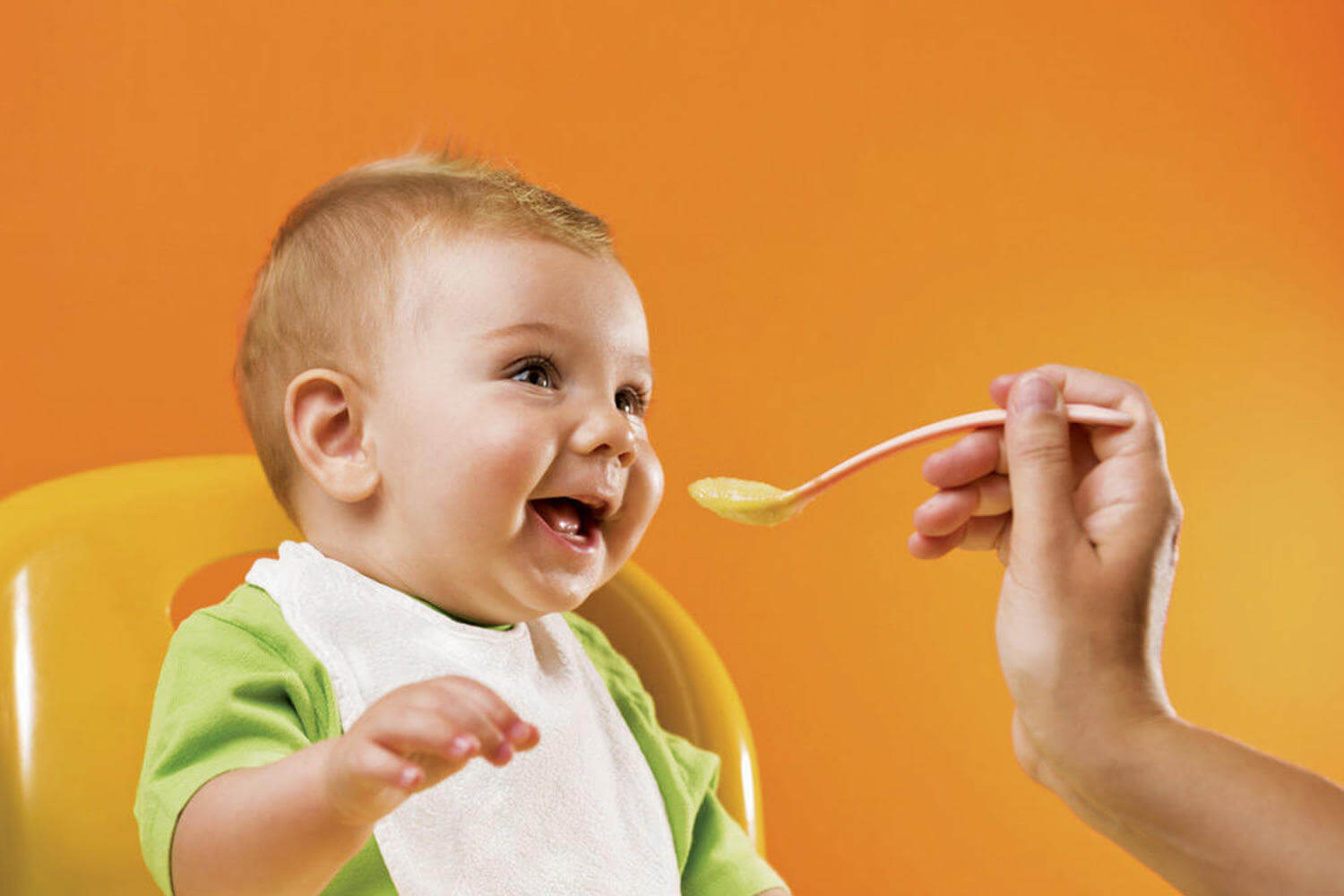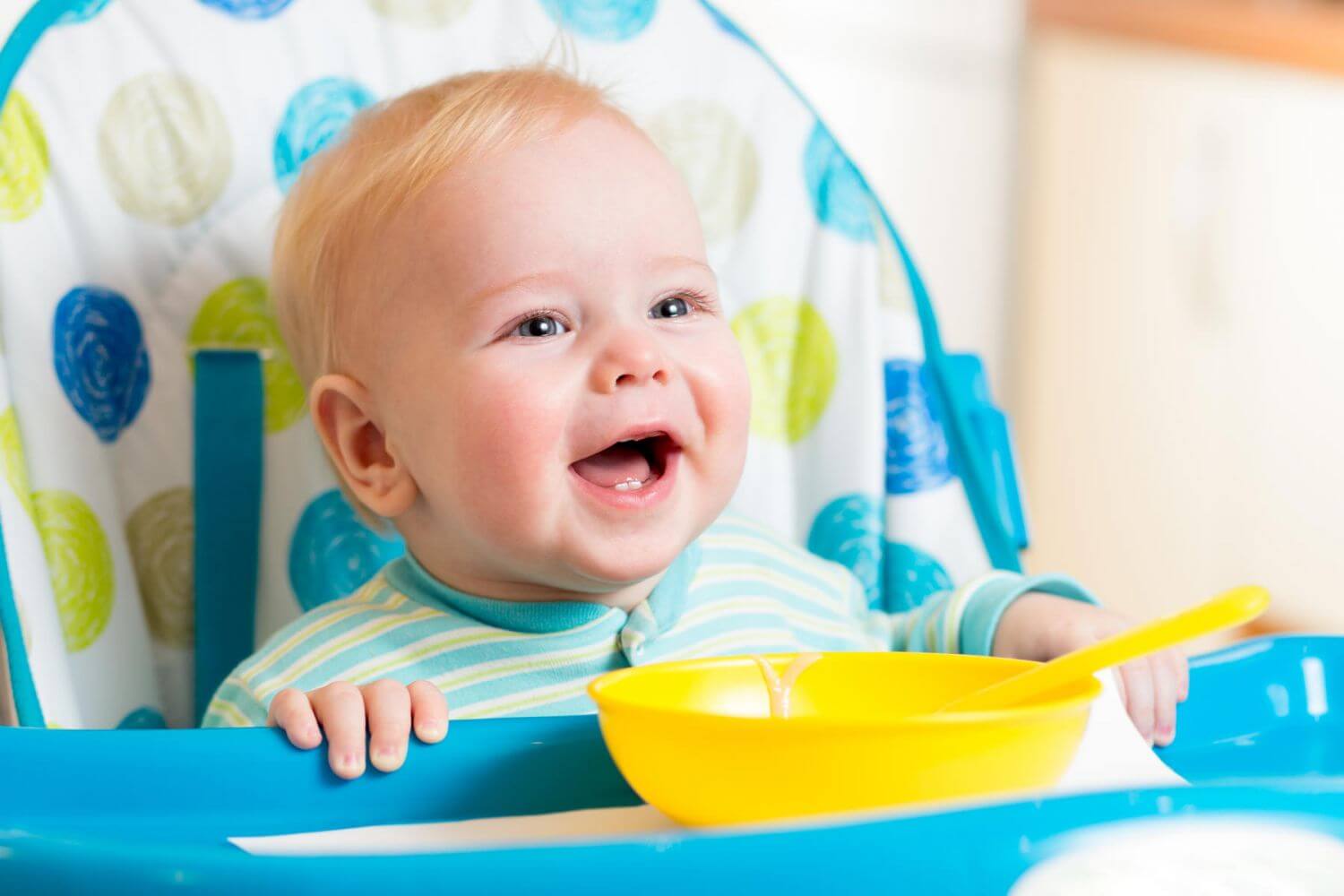How To Make Sure Your Baby Has A Good Relationship With Food


Written and verified by the psychologist María Alejandra Castro Arbeláez
Whether or not your child has a healthy relationship with food depends heavily on how you behave when you eat with them. It is very important that you are conscious of what your children are learning from you; they’ll learn that mealtime is a nice time if you make it feel that way. If you react angrily every time your child doesn’t eat, then you could be causing them to have a toxic relationship with food.
In the first two years of your child’s life, they will learn to stand up, walk, run, talk and eat. Eating means more than just picking up food with your fingers or a spoon. Learning to eat also involves developing a taste for new flavors and textures and learning the necessary skills in order to be a good diner.
Instilling healthy eating habits during the first two years of your child’s life is a kind of “preventative medicine” for avoiding picky eating. When babies have a good experience while they start on solid foods, this has a big impact on the foods they later appreciate or dislike.
The eating habits that are established during childhood (whether they are healthy or not) will influence children throughout their lives, even in adulthood.
It is important to work on these habits from when children are very young, because it is easier to instil a healthy relationship with food when a child is under 2 years old than to do this for example, with an 8 year old. As children grow, it becomes more difficult to instil good eating habits in them, and they will always learn best through example.
“The food you eat can be either the safest and most powerful form of medicine or the slowest form of poison.”
– Ann Wigmore –
How to Encourage a Healthy Relationship with Food

Change the way you think about food.
You may expect your child to effortlessly learn to eat perfectly, and to accept any food you offer. But the reality is that you will inevitably encounter obstacles that you will have to overcome.
Eating is something that does need to be taught and you should show your children how to try new foods and flavors without forcing them to eat something that they do not want. This takes patience, consistency, and a lot of love.
Offer Foods Many Different Times and on Separate Days
Babies who eat more than one particular fruit or vegetable usually do this after they’ve already been offered the food and rejected it at least 15 times.
But after they have rejected it, they had no negative feelings, and instead simply put down the food and eat normally. Without stress, nerves, or obligations.
This encourages their curiosity and afterwards they are able to taste the food and discover that they like it. They just need time.
Offer a Variety of Foods
Offering many different foods, flavors, and textures during the first two years of your toddler’s life will allow them to start trying them out and finding out that they are good. Babies may reject food but eventually they will accept it. They will have their own tastes and there will be foods that they like more than others, just as adults do.
Create a Relaxed Environment

When it is time to eat, you must leave your stress and nervousness at the door. Sometimes children will refuse to eat just because they are in a tense situation. Anxiety and stress will make them lose their appetite. Family meals are a time to be together, talking and connecting with each other, regardless of what you are eating or what your child under two refuses to eat.
Model with your behavior that you enjoy food in a safe environment, where eating means happiness and tranquility. You will be surprised at how your child will start to accept meals more quickly and that they will be able to eat with their family. You will be able to stop worrying about whether they are eating too much or too little. Eating as a family will be fun for everyone!
With these tips and with a lot of patience and love, you will realize how family meals will no longer feel like torture, and you will all enjoy a family meal where your children can learn good eating habits.
It is essential that children learn to have a good relationship with food from a young age, so that they will develop good eating habits in the future.
All cited sources were thoroughly reviewed by our team to ensure their quality, reliability, currency, and validity. The bibliography of this article was considered reliable and of academic or scientific accuracy.
- Guillamón, M. P., Periago, M. J., & Navarro-González, I. (2017). Valoración de la efectividad de la educación alimentaria en niños de primaria: estudio piloto. Rev Esp Nutr Comunitaria, 23(2). https://www.renc.es/imagenes/auxiliar/files/RENC_2017_2_05._Inmaculada_Navarro._Dieta_Escolares.pdf
- Rodrigo-Cano, S., Soriano, J. M., & Aldas-Manzano, J. (2016). Valoración de la efectividad de la educación alimentaria en niños preescolares, padres y educadores. Revista Española de nutrición humana y dietética, 20(1), 32-39. http://scielo.isciii.es/scielo.php?pid=S2174-51452016000100005&script=sci_abstract&tlng=en
- De La Cruz Sánchez, E. E. (2015). La educación alimentaria y nutricional en el contexto de la educación inicial. Paradigma, 36(1), 161-183. http://ve.scielo.org/scielo.php?pid=S1011-22512015000100009&script=sci_arttext
This text is provided for informational purposes only and does not replace consultation with a professional. If in doubt, consult your specialist.
